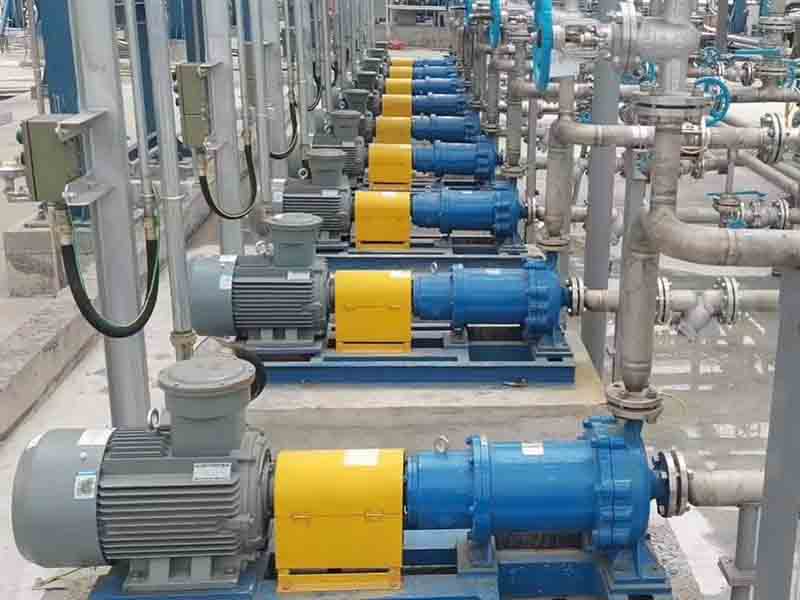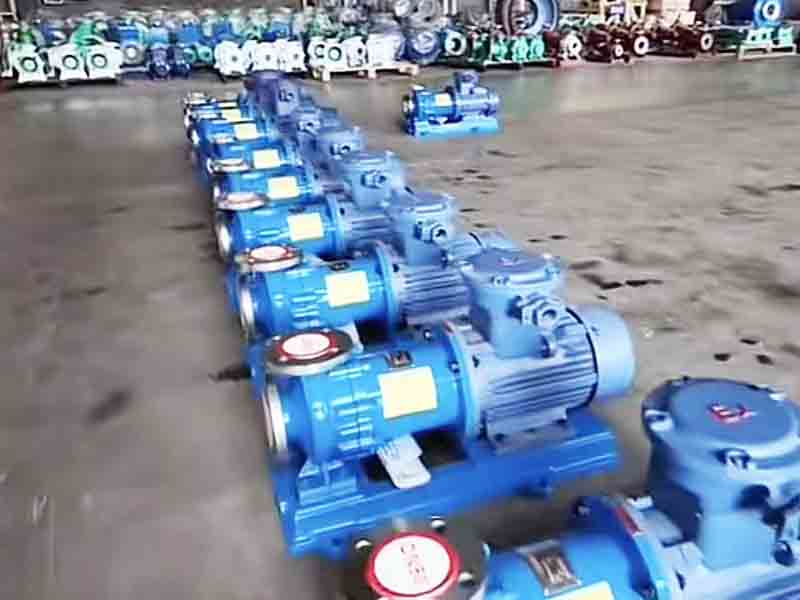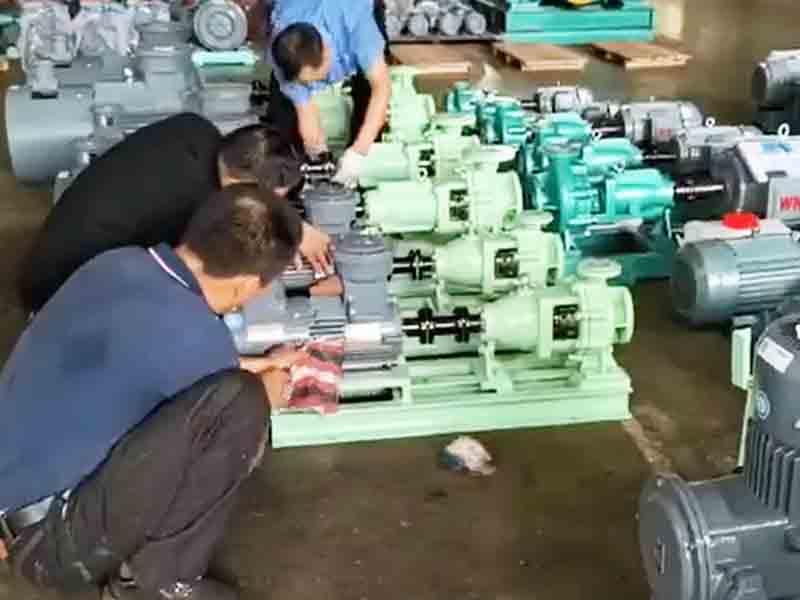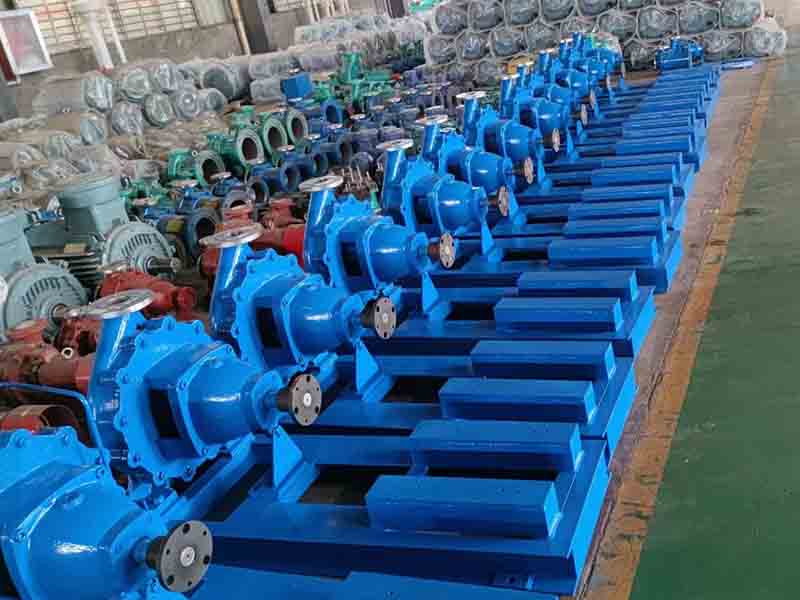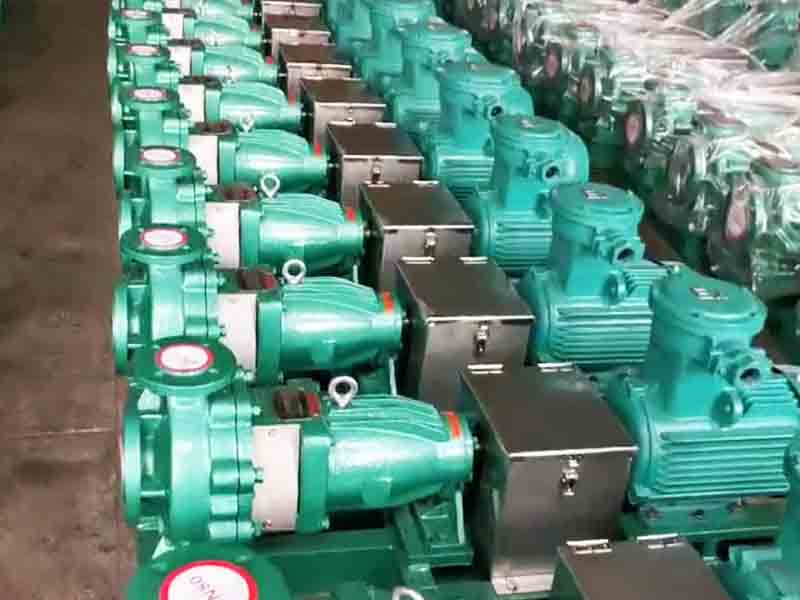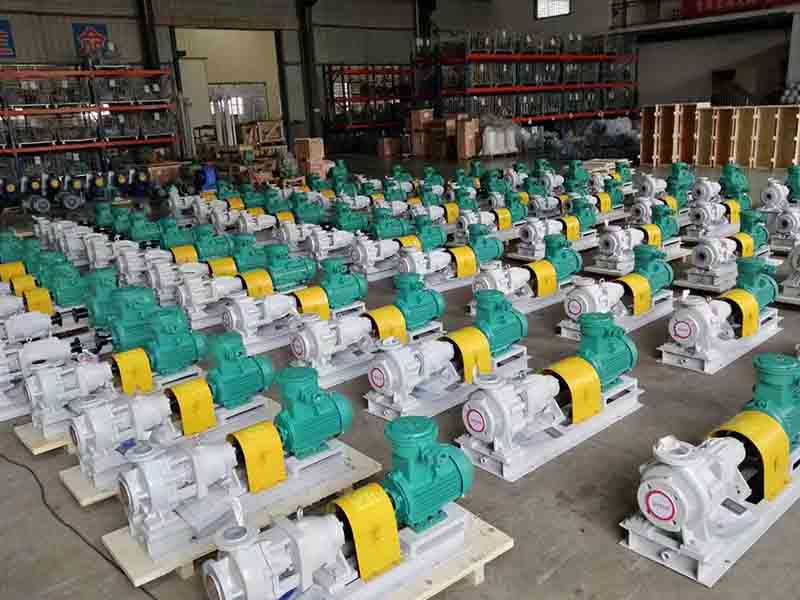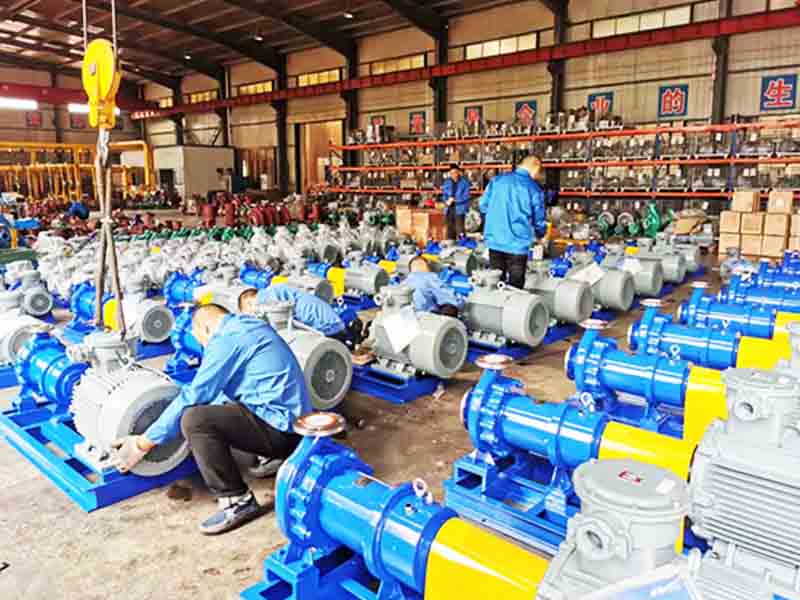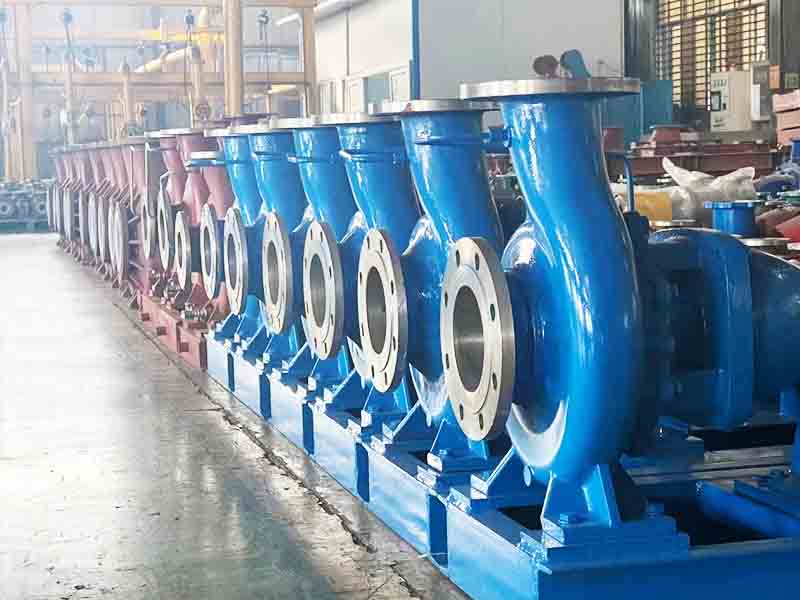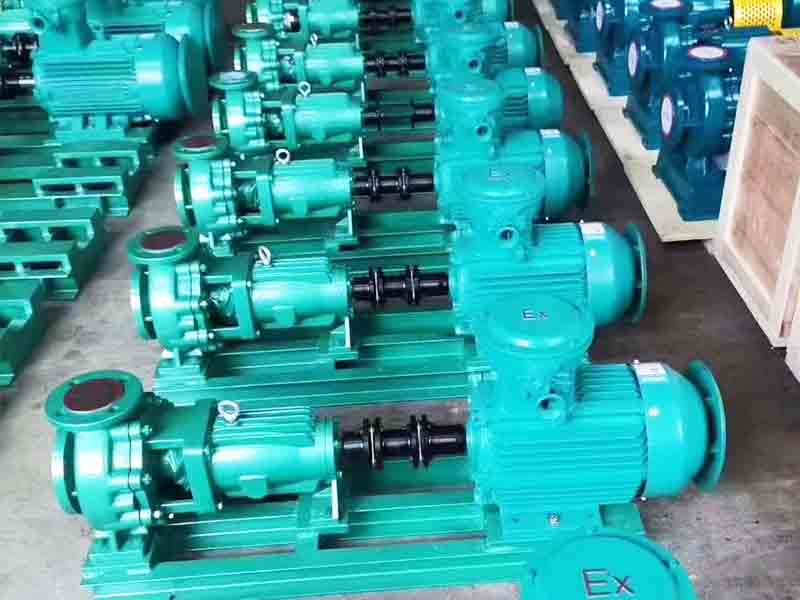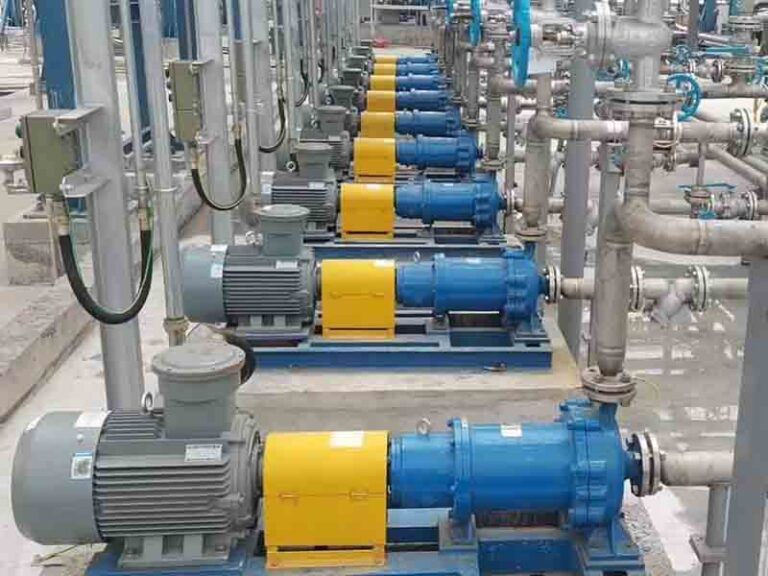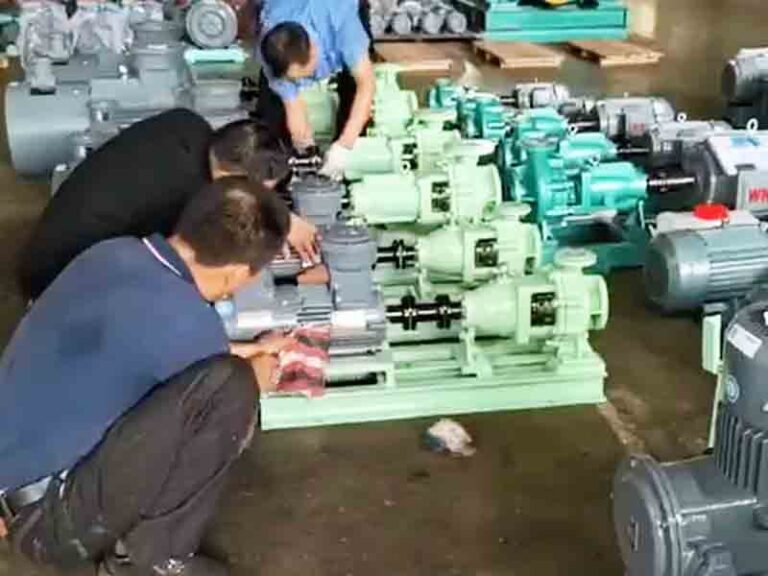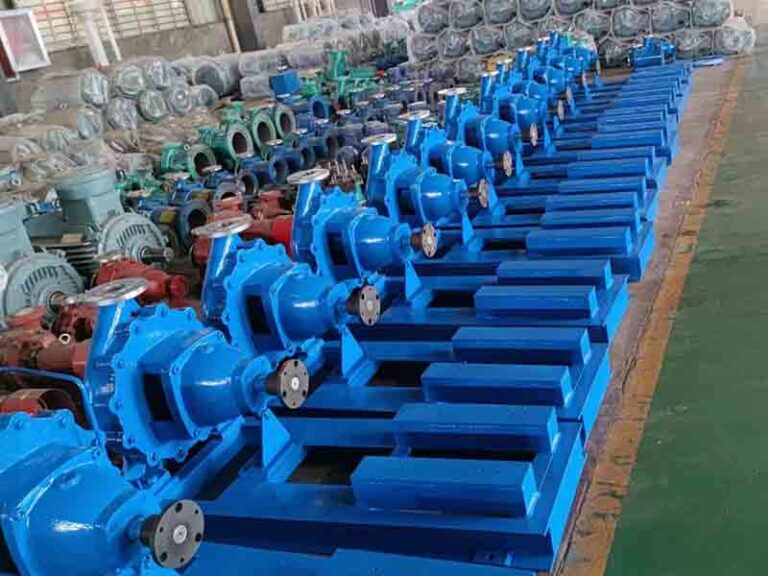In the field of industrial production, acid pumps play an extremely critical role. Whether it is chemical processing, wastewater treatment, or mining and pharmaceutical industries, the figure of the acid pump can be seen everywhere. This article will be all-round, in-depth analysis of the mystery of the acid pump for you, to help you fully understand this important industrial equipment.
What are Acid Pump
Acid pump definition and overview
Acid pumps, also known as corrosive liquid pumps, is a class of pumps specifically designed to transport various types of acidic media or other corrosive media. In the chemical industry, metallurgy and many other industries, acid pumps have become indispensable equipment because of their ability to safely and efficiently handle corrosive liquids.
Key Components of Acid Pumps
Acid pumps are mainly composed of motor, shaft seal and external foot. The motor serves as a power source to provide the energy required for the operation of the acid pump; the shaft seal plays a crucial role in sealing to prevent the leakage of the acidic medium being conveyed; the external foot is used to support and fix the acid pump to ensure its stability in the operation process.
Significant differences between acid pumps and ordinary pumps
Compared with ordinary pumps, acid pumps have a more complex structure and more stringent material selection. As a result of the need to deal with corrosive media, acid pump in the design and manufacture, must give full consideration to the corrosion resistance of the material to ensure the service life of the equipment and operational safety. This makes the acid pump in the use of a wider range, can be adapted to ordinary pumps are difficult to handle the harsh working conditions.
Acid Pump Structure and Working Principle
Acid-resistant materials
Acid-resistant pumps are based on ordinary pumps, the use of acid-resistant materials developed and produced. Most of the acid-resistant pump can be acid-resistant key in its selection of pump materials. Common non-metallic materials such as polyethylene, polypropylene, polyperfluoroethylene propylene, etc., are often used to make pump overflow parts. Among them, polyperfluoroethylene propylene is known as one of the high-quality acid-resistant materials, almost able to resist the erosion of any acidic medium, with the reputation of “Plastic King”.
Working Principle
The impeller of the acid-resistant pump rotates at high speed, driving fluid between its vanes. Centrifugal force pushes the fluid outward, increasing its velocity. The pump casing collects this fluid and guides it through a gradually expanding volute channel, converting kinetic energy into pressure and reducing energy loss.
During suction, high-speed impeller rotation creates a low-pressure area, drawing liquid continuously from the suction tank into the impeller through the suction pipeline. This pressure difference ensures stable and continuous pump operation.
Unique Advantages of Acid Pumps
Acid-resistant pump products are suitable for conveying various corrosive media from – 20℃~120℃. Its overflow part is all made of plastic alloy (such as PTFE, PFPE and other materials), which is made by reasonable formula and molding processing. This kind of pump combines the advantages of many kinds of plastics, and has the remarkable features of strong corrosion resistance, high mechanical strength, and not easy to aging.
Basic Features of Acid Pump Types
Material Durability
Acid pumps are usually manufactured using acid-resistant materials such as stainless steel, plastics or special alloys. These materials can effectively resist the erosion of acids, to ensure that the acid pump in the long-term conveying of acidic media in the process, but still be able to maintain good performance and long service life.
Flow rate adjustment feature
Flow rate is the key index to determine the ability of acid pumps to transport acidic media, and can be flexibly adjusted according to the actual process requirements. Different industrial application scenarios have different flow requirements for acid pumps, and by reasonably adjusting the flow, it can meet the precise needs of the production process and improve production efficiency.
Pressure resistance
Acid pumps are designed according to the pressure of liquid transportation, and can operate safely and stably in high-pressure systems. In some high-pressure transmission of acidic media in the process, the acid pump pressure resistance is particularly important, which ensures the safe and reliable operation of the entire transmission system.
Types of Acid Pump
Diaphragm Pump
Diaphragm pumps push liquid through the movement of elastic diaphragm. When the diaphragm reciprocates under the action of the driving mechanism, the volume of the pump chamber changes, thus realizing the suction and discharge of liquid.
Centrifugal pump
Centrifugal pump in the conveying process, the use of high-speed rotation of the impeller to drive the liquid, so that the liquid in the role of centrifugal force along the impeller tangential direction is thrown out, so as to realize the liquid conveying.
Gear pumps
Gear pumps push the liquid and increase the pressure of the liquid through the mutual meshing and separation of gears. When the active gear drives the follower gear to rotate, the liquid is extruded between the teeth of the gear, thus realizing the conveying.
Peristaltic pump
Peristaltic pump through a series of cylindrical rollers rolling on the flexible hose, squeezing the hose so that the liquid moves forward, like intestinal peristalsis to achieve the transfer of liquid.
Application of Acid Pumps
Chemical Processing Industry
Acid pumps are widely used in chemical processing to transfer corrosive liquids, dispense chemicals, and handle other acidic substances. For example, in the chemical synthesis reaction, acid pumps can accurately transfer acidic raw materials to the reactor to ensure the smooth progress of the reaction.
Wastewater Treatment
Acid pumps play an important role in wastewater treatment, and can be used to transfer acidic wastewater and other corrosive substances to participate in the entire wastewater treatment process. Through the transfer of acid pumps, acidic wastewater can be transported to the corresponding treatment links, neutralization, purification and other treatments, so that it meets the emission standards.
Mining and Mineral Processing Industry
In mining and mineral processing, acid pumps are used to transfer acidic solutions, leaching solutions and other corrosive liquids. In the leaching process of ores, acid pumps can transfer acidic leaching agent to the ore treatment equipment to realize the extraction of useful components in the ore.
Pharmaceutical and biotechnology industry
In the pharmaceutical and biotechnology sector, acid pumps are used to handle corrosive liquids such as cleaning solutions, disinfectants and laboratory chemicals. In the pharmaceutical production process, acid pumps can ensure the precise delivery of various corrosive reagents to ensure drug quality and production safety.
Plating and surface treatment industry
In the plating and surface treatment industry, acid pumps are used to handle acidic solutions such as plating baths and electrolytic polishing solutions. Acid pumps accurately transport these acidic solutions to the plating or electrolytic polishing equipment for surface treatment of workpieces.
Why is it Important to Have a Suitable Acid Pump
Safety First Considerations
In the field of industrial chemistry, companies must adhere to high safety standards to protect plant facilities, the environment, and the health of workers involved in the production process. Any leakage of substances during the production process can have serious consequences for worker health, plant facilities and the surrounding environment. The right acid pump can effectively reduce the risk of leakage and ensure safe production.
Cost saving factor
Chemical production is often costly, and any plant shutdown or contamination of the final product can lead to significant economic losses. Choosing the right acid pump can ensure the continuity and stability of the production process, avoiding production stoppages and product losses due to equipment failure or leakage, thus realizing effective cost control.
Product Quality Assurance
With the increasing variety of chemicals used in the production process each year, the demands on the product mix are becoming extremely complex. The right acid pump can accurately control the amount of chemicals and transport conditions, to provide strong protection for product quality, to ensure that the final product meets the strict quality standards.
Advantages and Limitations of Acid Pumps
Significant Advantages
Higher Efficiency and Reliability: Acid pumps offer higher efficiency and reliability when transporting corrosive liquids compared to other types of pumps. Its specially designed structure and selected materials can adapt to the harsh working environment and ensure long-term stable operation.
Strong corrosion resistance: Acid pumps have excellent corrosion resistance and can handle a variety of corrosive liquids without being damaged. This makes the acid pump widely used in many industrial fields involving corrosive media.
Enhanced safety: Acid pumps are designed with safety in mind, effectively reducing the risk of leakage or contamination. For example, some acid pumps use a special sealing structure, which can prevent the leakage of acidic media and guarantee the safety of the working environment.
Limitations
Higher cost: Due to the special requirements on structural design and material selection, the cost of acid pumps is usually higher than other common types of pumps. This increases the equipment purchase cost of the enterprise to a certain extent.
Limited flow and pressure capacity: Although acid pumps are able to meet the needs of most industrial applications, there may be some limitations in their flow and pressure capacity in some special occasions where the flow and pressure requirements are very high.
Higher Maintenance Requirements: Regular maintenance is required to ensure that acid pumps continue to operate properly. For example, checking the sealing performance of the pump, replacing wearing parts, etc., which increases the maintenance cost and workload of the enterprise.
How do You Choose the Right Acid Pump
Understanding of chemical characteristics
The first step is to make a thorough assessment of the specific chemicals involved. Understand the corrosiveness of chemicals, viscosity, temperature and other characteristics, will provide an important basis for the selection of the appropriate pump type and material. For example, for strong acids and alkalis, the need to choose a highly corrosion-resistant materials pump; and for highly viscous fluids, the pump needs to have the right suction and flow.
Choosing the right pump type
Different types of pumps are used for different chemical processing tasks.
Centrifugal pumps: Centrifugal pumps are used for low-viscosity fluids and continuous, high-flow application scenarios. Centrifugal pumps are widely used in chemical processing, but may be less suitable for highly viscous or abrasive chemicals.
Positive displacement pumps: Positive displacement pumps are typically best suited for handling thick, abrasive or shear-sensitive chemicals. These pumps provide a consistent flow rate and excel in applications that require precise handling of fluids.
Diaphragm Pumps: Diaphragm pumps are commonly used to handle hazardous and volatile chemicals. Pumps based on diaphragm designs offer leak-free performance and can handle a wide range of chemical viscosities and temperatures.
Carefully selecting the right materials
Another important factor when choosing a chemical pump is selecting the right materials for the equipment. The pump casing, seals and critical internal components must be able to withstand the chemicals being pumped.
Stainless steel: Stainless steel offers excellent corrosion resistance in many chemical applications, but may not be the best choice for highly acidic materials.
Thermoplastics: Materials such as polypropylene and polyvinylidene fluoride (PVDF) are lightweight and highly resistant to aggressive chemicals, making them ideal for handling highly corrosive fluids.
Elastomers: Materials such as ethylene propylene diene monomer (EPDM) or fluoroelastomers are used for seals and gaskets. It is critical to ensure that these materials are compatible with the chemicals being transported to avoid leakage or degradation.
Consider Pump Coatings and Linings
For additional protection, applying special coatings or using pumps with chemical-resistant linings can extend pump life and improve efficiency. For example, ceramic coatings can enhance pump durability when handling abrasive chemicals.
Ensure Proper Configuration
Choosing the correct pump configuration ensures smooth operation. Pumps designed for chemical processing often have double seal systems, closed loop systems or magnetic drives to prevent leaks and ensure safe handling of hazardous materials.
South pump’s Acid Pump Solutions
Superior Material Selection
South Pumps utilizes high quality corrosion-resistant materials such as PVDF, PTFE, and stainless steel to ensure long term reliable operation of acid pumps even in extreme environments. These materials are resistant to a wide range of acidic media, extending the life of the pump.
Innovative design concept
South Pumps’ magnetic drive pumps feature a leak-free design, which is particularly suitable for application scenarios where safety is of paramount importance. This innovative design effectively avoids the risk of leakage of acidic media and ensures a safe working environment.
Comprehensive Technical Support
With a team of experienced engineers, South Pump is able to provide customers with customized solutions and extensive technical support to ensure the best performance of acid pumps. Whether in the process of equipment selection, installation and commissioning or post maintenance, customers can get professional technical guidance.


